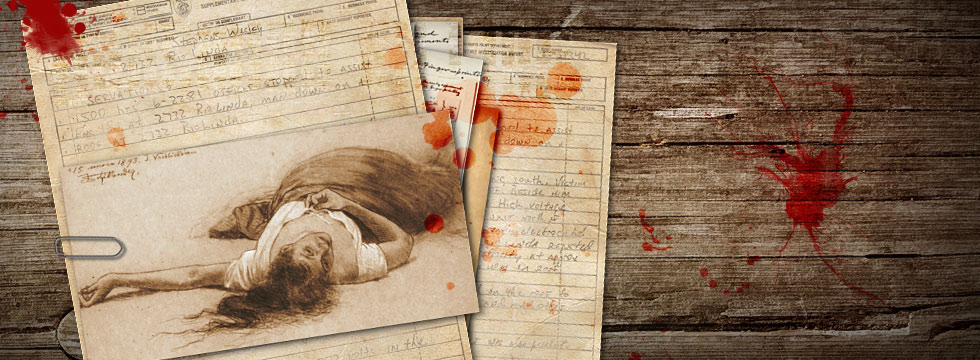Crime, punishment, and lies – interview with the developer of hype-worthy Bohemian Killing
Although the dev himself describes the game as "Phoenix Wright meeting Gone Home", it seems to be an understatement. The upcoming Bohemian Killing is much more complex, and could earn its place among the most extraordinary games of recent years.
When we tried to set up an interview with Marcin Makaj – the creator of Bohemian Killing – he answered: “I’m going to be busy next week, I’m attending a lecture on murderers’ modus operandi”.
It seems that the game about a killer trying to lie his way out of a murder he had committed (or who voluntarily atones for his deed) is in good hands.
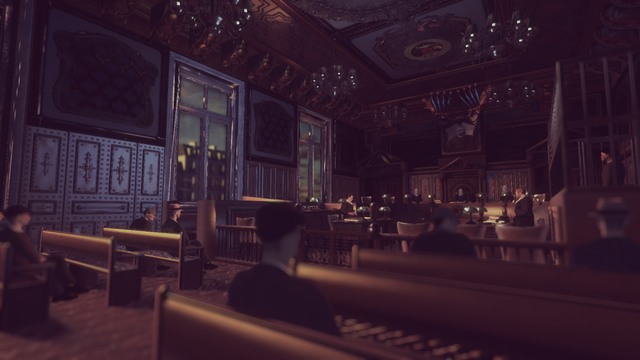
Jakub Mirowski: How did you come up with the idea of a courtroom adventure game?
Marcin Makaj: I study law myself, I’m in my 4th year now, and criminal law is my genuine passion. I love books by John Grisham – also a lawyer, the writer of legal thrillers like The Pelican Brief and The Rainmaker. I’m also a Phoenix Wright fan. It was a great game, but what I found really disappointing was the fact that we were obliged to play it in a certain way; precisely how the developers planned it. There was no room for creativity or non-linearity. That’s why I came up with the idea of a legal game, one in which the players would be able to get really inventive.
So is any sort of legal knowledge, even the most basic, required in this game?
Absolutely not. Basically you just need to know the rules of a criminal trial: evidence, alibi, the defender, the prosecutor, etc. It should totally suffice. If you’ve seen just one episode of Judge Judy, you will certainly manage.
Don’t you think that all this struggle with testimonies and evidence and digging through documents can deter some players?
Well, initially I planned the testimonies to be presented word-by-word as they were given by a witness. The players would have to find the important parts themselves. Currently, each piece of evidence is found in a separate menu and labeled with only two or three sentences describing the vital elements or points of a given proof or a testimony. Finding information of substance isn’t very hard.
So we are defending ourselves during a trial. This must have required writing and recording an unthinkable amount of dialogue lines, right?
Actually, there isn’t that many of those. When I recorded the dialogues, there were 2 hours in total. See, your defense isn’t about choosing dialogue options, it’s rather about your actions during the protagonist’s retrospections. It works like this: the judge asks a question: “What were you doing on that day and at this hour?”. Then, a retrospection begins, and we find ourselves in the given part of Paris, at the given time of the given day. And we do what we want. Technically, we could just state that we don’t know the victim at all, never even seen him or her; that we got back home, took a shower and went to sleep. The knife used during the murder had been stolen, then planted, and the witnesses are all lying.
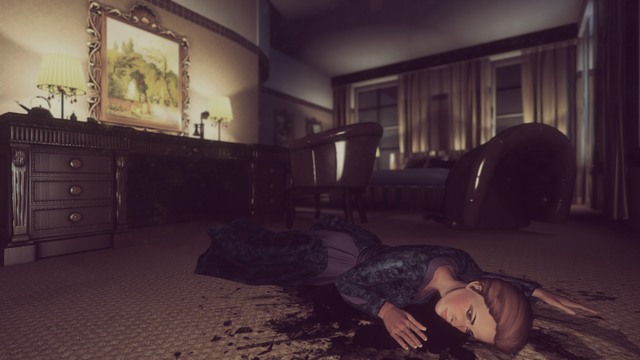
You mentioned planting evidence: is there a possibility that we had in fact committed the crime but set somebody up, say – our neighbor?
Indeed. There are two people who can be set up in the case. The fact that the main character had committed the crime is beyond doubt: we see it during the prologue. The players don’t know the reason, though, and have to evaluate themselves if this murder deserves a punishment, thus making the protagonist a psychopath straight from American Psycho, or they might try to lie their way out of trouble.
So we have a retrospection, and based on our actions there, a story is being told...
That’s what I call a Phoenix Wright and Gone Home meeting point – in terms of gameplay, the latter is the best comparison.
So we don’t conduct dialogues ourselves?
Only our actions influence the things that the protagonist says. Any action we take – even something as simple as opening the door or walking up the stairs – will cause the character to make certain remarks. This way, we make sure these statements sound natural.
Could you provide an example of the most creative scenario in the game, if that’s OK to share?
I think the most interesting scenario is putting the blame on a certain person – I obviously can’t tell who that is as it would be a major spoiler. But you need a lot of evidence, which has to be accordingly manipulated, along with the witnesses’ testimonies, in order to succeed.
In the early materials there was an example given of the player possibly doing something that a sane person wouldn’t – jumping in place, for example – and the action was said to influence the testimonies as well.
Well, pointless jumping will not be the kind of action that would provoke any reaction – but if we decide to shave in the middle of the night, for example, the judge might want to ask what could possibly be the reason behind it. I even utilized an idea from Under Suspicion, with Gene Hackman and Morgan Freeman, which is a remake of a French crime film Garde a vue. When the inspector asks a question, the suspect answers; the action goes back into retrospect mode but the inspector also enters that memory, thus appearing in the crime scene – he would, for example, approach the victim moments before their death and ask a question. In Bohemian Killing it works identically; during a flashback, the judge can suddenly come out of the other room to inquire us. So we don’t jump back and forth between the court and our memories.
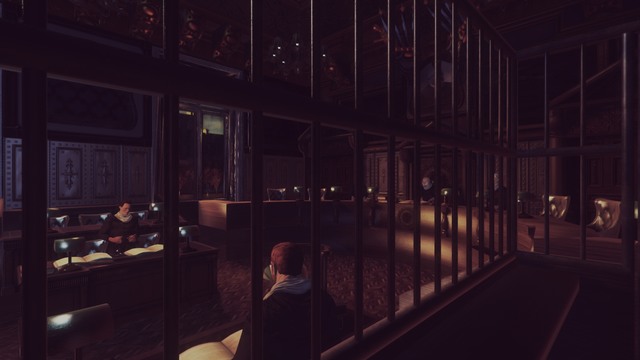
How did you come up with this particular setting? Why the 19th century Paris?
It was actually my sister’s idea – she lives in Paris. I spent two weeks there and absolutely fell in love with the city. My sister has sent me a lot of materials, it was mostly her initiative.
But this won’t be a very realistic vision of Paris. Some steampunk elements are going to come into play. How apparent will they be, and will they affect the gameplay?
The protagonist of Bohemian Killing invented something that I like to call “a steampunk version of Internet shopping”. In many tenements, houses, or hotels there are devices resembling our vending machines. The only difference in the game is that people can order fresh products brought by the farmers into the city center – say, potatoes – which can then be distributed via valves throughout the city. He also works on a scrub-robot, which we can actually see in the game. All those steampunk elements were inspired by the ideas about the 20th century Paris of the people living in the 19th century. And they imagined all kinds of things: airplanes, hairdressing robots, or teaching machines, which would mince books so they could be inserted into students’ heads. Those are pretty well-known ideas, you can find a lot of those in the web.
The Indiegogo trailer mentions two game modes; is this about the division between the court and the retrospections, or are you planning something else?
At the very beginning of the trial, our lawyer asks us whether we will require his assistance. He can provide some hints: there’s an additional menu in the game, where the player can check how the prosecutor’s version exactly looks. The indictment is pretty convoluted, so you might forget what had happened at which hour. The time in-game passes with the same pace as real time, hence it’s possible to, say, miss a meeting, which in such a case is held without our presence. That’s why I added this menu with tips from our lawyer, who can tell us what possibilities we currently have.
One more thing about the trailer; the initial announcement said there’s as many as thirteen possible endings.
Yes, but the number was decreased to eight.
How long does it take to finish the game?
The whole gameplay happens in real time; the retrospections are about four hours long. Then there are the scenes in jail and court – in total, I’d say it’s around six hours. But since some players can decide to take the easiest route and testify that the witnesses are lying, and they went straight to bed after coming home, you could finish the game in fifteen minutes – a sort of speedrun. Going to bed automatically adjourns the testimony. Time goes fast-forward to 10 hours later; all the things that the judge asks about happen in that time span.
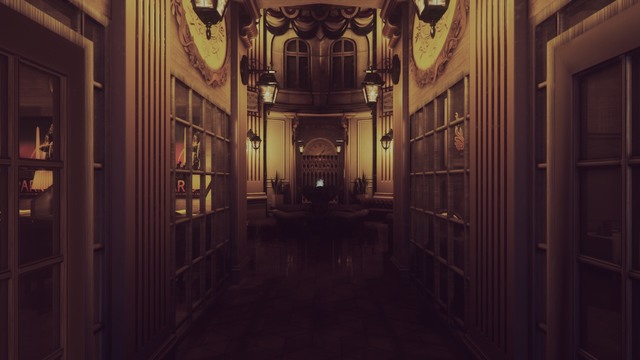
How big is the world and how many locations can we visit?
Apart from the courtroom, there’s the jail, which we can ‘unofficially’ visit. There’s also Montmartre... The game world is as big as, let’s say... a third of a single hub from Deus Ex: Human Revolution. In addition, we have a hotel full of rooms, a tenement containing a staircase and two flats, a cafe, and a couple of places I won’t talk about because it would spoil the story.
So the number of endings has been decreased. Have other elements undergone any serious changes since the Indiegogo campaign? After all, over a year has passed since anything had been posted on Facebook, for instance. You’ve managed to find a different publisher during this period; has the project evolved because of this?
Yes. The graphics were completely overhauled – what you can now find on the Internet is not the current version of the game; most of the screenshots are from November 2014. Virtually all the locations and interiors have been changed; on top of that, I decided to change one location: instead of the banks of Seine, there’s the Montmartre hill, where the French bohemians resided – I decided that it will add more to the atmosphere. I have also dropped the idea of the tools for measuring player’s pulse during the interviews, since they didn’t quite work as I’d imagined.
I have to admit that this really is an interesting and ambitious project. What do you think caused the failure of the Idiegogo campaign?
When I spoke to my friends from the industry, we’ve established that, first and foremost, I asked for too much money ($13,000). Second of all, I had too little material – I should have added a demo; the trailer and the screenshots alone didn’t quite suffice. Another factor might have been the fact that I am completely unknown in the business, and at that point, it was my first 3D video game. I had finished a couple of games before that, but those were mostly simple mobile games. The fact that this is a very ambitious project could have worked to my disadvantage. But I managed to get the attention of the media – some Polish sites, as well as IGN.
Were you surprised? Major video games sites were writing about you, Adrian Chmielarz of The Astronauts ‘advertised’ you on his Twitter...
As for Adrian, I know him personally. But I received a huge support of Polish gamedev: they evaluated the initial versions of the game and the trailer – before the project even entered Indiegogo. They had actually advised me against going for as much as $13,000, but I decided to have a shot. I made it a flexible amount, so that regardless of the sum, I would get the money. But the media reception was a very pleasant surprise.
Haven’t you thought about other crowdfunding platforms?
Well, you can’t start a Kickstarter from Poland, and I didn’t have anyone who could do it on my behalf. I didn’t take Polish platforms into consideration.
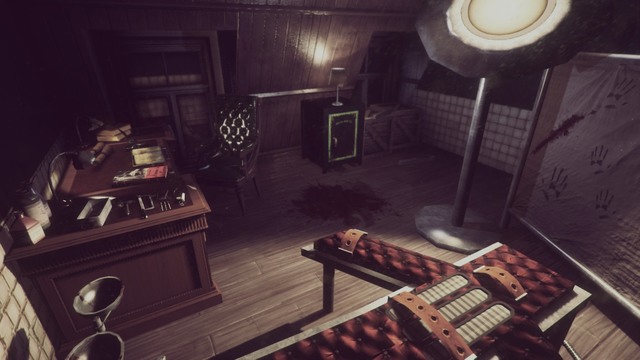
When did you start working with IQ Publishing?
Basically during the Indiegogo campaign. IQ Publishing has a series of Polish indie games there: “Made in Poland”, and they were interested in releasing Bohemian Killing. The negotiations took a couple of months, and we’ve finally reached an agreement in all the matters. We decided to cooperate, and so far I am very happy with our partnership.
What date of release are you thinking of?
In a week we should be able to enter Steam Greenlight. This phase shouldn’t take more than a month, and if we manage to complete it, the game will be released. And recently almost every game succeeds in doing so…
Aren’t you afraid that due to the famous “Indiepocalypse” that we’re going through right now, such ambitious titles as yours might be lost among the flood of pixelart adventures and lawn mowing simulators?
I think that such a niche game as mine should be able to come out on top. During the development of Bohemian Killing, I had two aspects in mind. The first one was nonlinearity. What I am aiming to do is to make possible any logical and sensible action that the players might come up with in the game. The simplest example is about a witness who testifies that he’d seen us in the hallway, and that our clothes were blood-stained. You can testify that you’ve never seen the guy – and simply not enter the hallway during the retrospection. Then you can prove that the witness had a reason to lie. Or you can actually happen upon him, but with your clothes clean. Or your clothes can be stained with blood, but it might be your own blood, because you cut yourself while shaving.
The second important thing is that you can engage in multiple playthroughs, each time having a different experience. During a single game, you simply cannot see everything. There are two, sometimes three variants of the same location; which one you’ll find yourself in depends on the choices you made. Hence, a single decision introduces different implications. Each object is going to be interactive. You can use everything – there are three ways of interaction: first of all, a classic point-and-click to an object in order to use it; then, simply entering a location can be perceived as an interaction. If you decide to take the stairs, for example, the judge might ask why you haven’t used the elevator if you had to get to the 5th floor. The last type is “observation” that prompts a remark by the protagonist, and an appropriate reaction of the prosecutor. Those are the most vital aspects of the game.
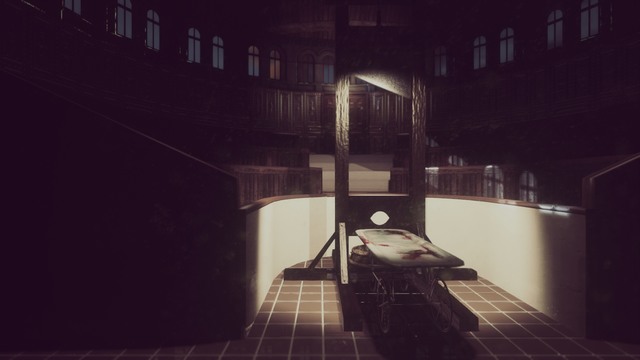
If everything goes the way you planned it, would you rather stay in the business or maybe focus on your studies, or perhaps a totally different job?
I even have an idea for a sequel to Bohemian Killing – but that would be more of a spiritual heir, something like what Bioshock was for System Shock. But those plans I can only put in motion if my game proves successful. If not, I will be left with a prosecutor’s career.
